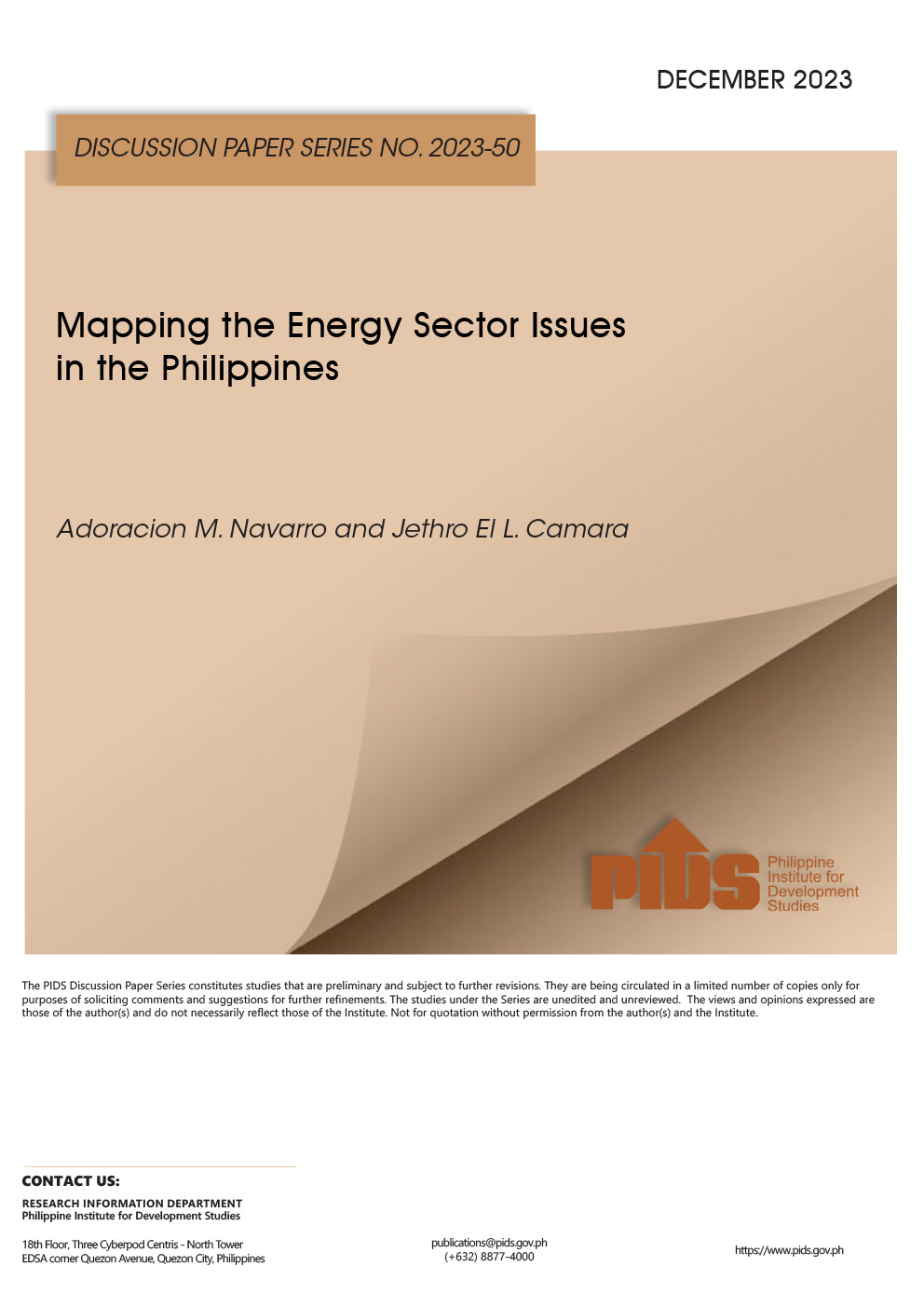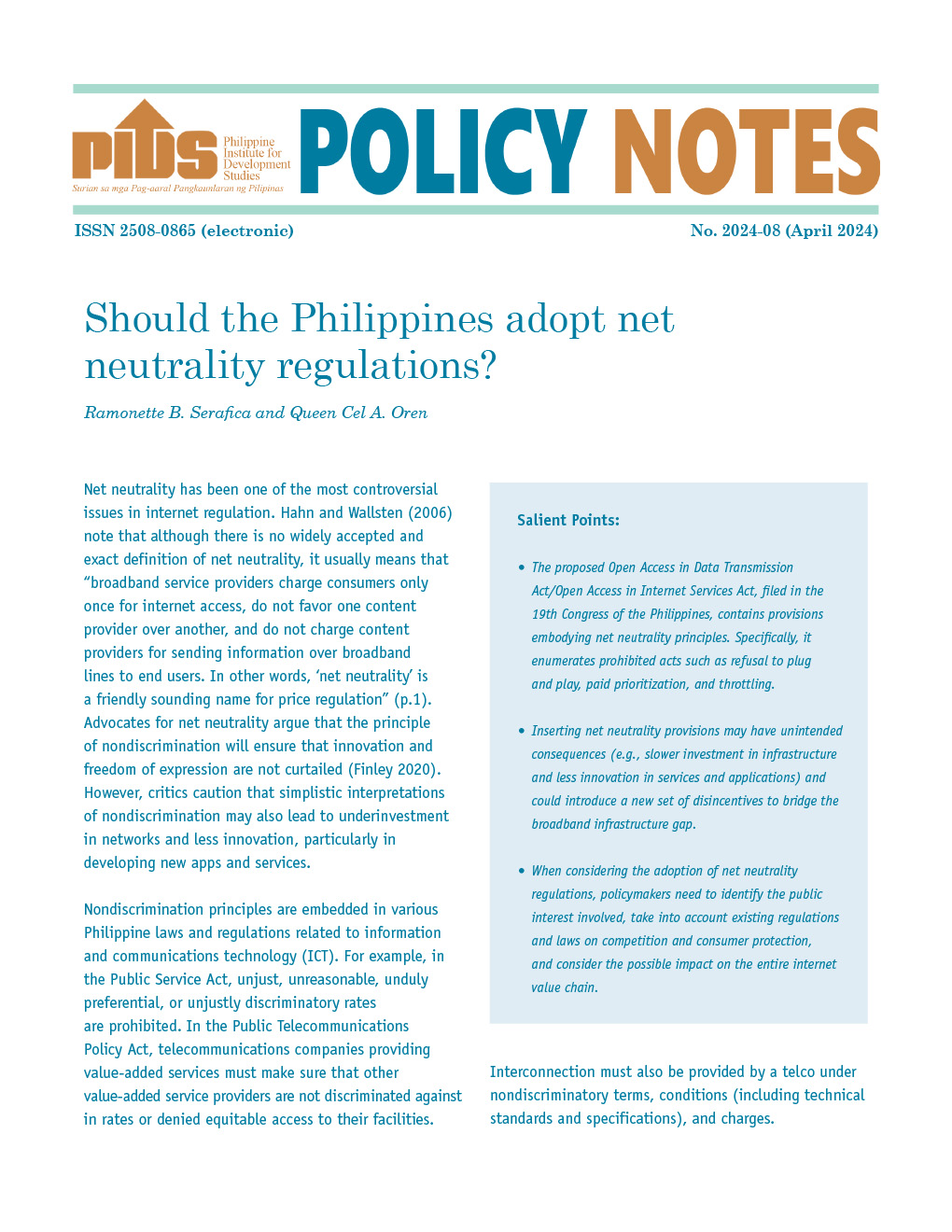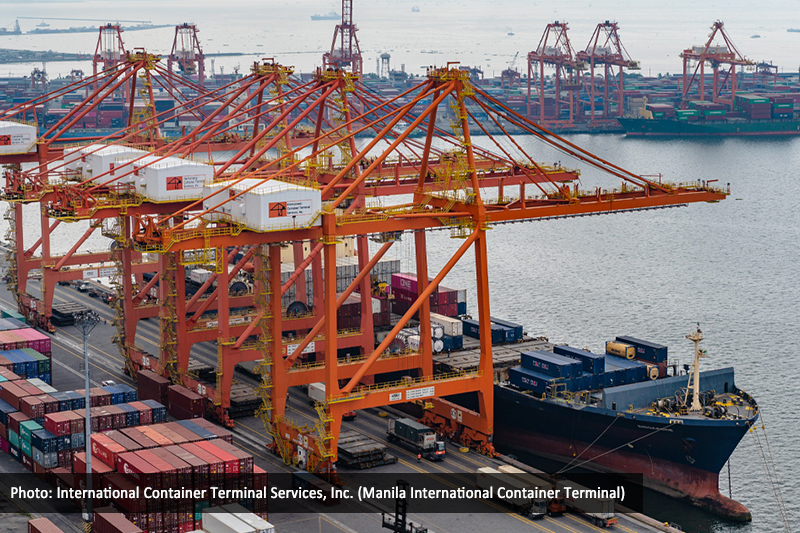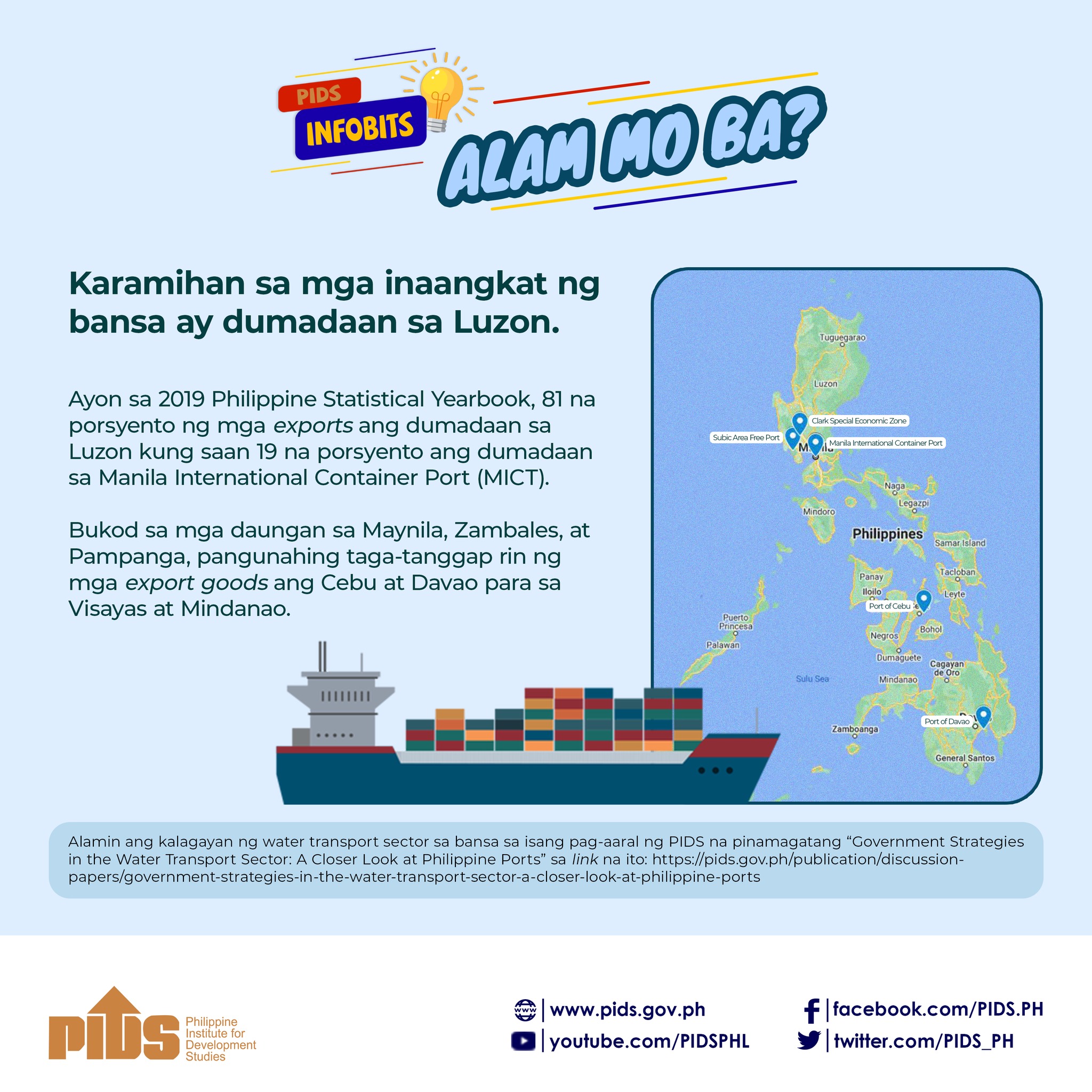SOMETHING is wrong somewhere. So says former Cabinet Cluster Secretary Jose Rene Gregory D. Almendras, the central figure in a port congestion problem four years ago.
The congestion of ports, where imported goods are processed before these hit the shelves, was emphasized by a truck holiday called for November 19-23 by small independent truckers.
Containers are stacked at the Manila North Harbor in Manila. The Bureau of Customs is mandated to complete the inspection of container vans in the country’s ports within 24 to 48 hours.
In 2014, port congestion started when the City of Manila imposed a truck ban. It caused enough bottlenecks that disrupted the entire shipping system in Manila.
Hundreds of ships were on anchorage and waiting on the line; docking ports were full.
“It’s bad,” Almendras told the BusinessMirror on November 21, the third day of the truck holiday. The truckers, notably, were also protesting the move by government to phase out trucks next year that are 15 years old or older.
“Some people say it’s not a crisis,” Almendras said. “Not yet.”
Imports influx
THE congestion of ports worsened due to the influx of imports that has resulted in the increasing volume of empty containers left in port areas.
The volume of imported raw materials is usually higher than the number of products being exported during this time of the year, according to Rex Agarrado of the Philippine Association of Meat Processors (Pampi).
Agarrado said the truck holiday may force small meat-processing firms to shut down their operations in the meantime due to lack of raw materials. Meat processors import about 80 percent to 90 percent of their raw materials such as mechanically deboned meat, which is locally unavailable, according to Agarrado.
“This is not part of our earlier assumptions when we promised to the government to maintain our prices. We have to ask the government to assist us [on this],” he told the BusinessMirror.
“This is the Christmas season and all factories are running 24 hours. And when materials are scarce the risk of shutdown is coming in,” he added.
If small meat processors would want to sustain operations, they would be forced to purchase raw materials locally, which would be very expensive, according to Agarrado.
“If they would shut down then it would mean their operations would be cut from the usual seven days a week to five days a week,” he explained.
Based on the estimates provided by Agarrado, meat processors incur an additional cost of over P10,000 due to storage costs, electrical costs and demurrage. These additional costs, according to Agarrado, are a burden to small meat processors. He cited one meat processor who unloaded 15 containers on Monday and it cost the company P150,000 for one day of delayed unloading.
“We are not threatening to raise prices but we need help when the effect [of the port congestion] is tremendous,” he said. “We promised to the DTI [Department of Trade and Industry] and DA [Department of Agriculture] that we are not going to increase prices until the end of the year unless prices go up unexpectedly.”
Unloading sugar
ANOTHER important commodity expected to be delayed is sugar.
Nonetheless, the Sugar Regulatory Administration (SRA) said on the third day of the truckers’ holiday it is doing its best to facilitate the easier unloading of imported sugar.
“If there is port congestion then there may be some delays, but the SRA is coordinating with the BOC [Bureau of Customs] and FDA [Food and Drug Administration] to expedite and prioritize processing of imported sugar,” SRA Administrator Hermenegildo R. Serafica told the BusinessMirror.
Serafica said the SRA has not received any request from participating traders and importers under its importation program to extend the December 31 deadline for the shipment arrivals.
“I am confident shipments will arrive before the deadline,” he said.
The SRA earlier allowed the importation of 150,000 metric tons (MT) of sugar to plug the shortfall in local supply and arrest the high retail prices of the sweetener in the local market.
Data from the SRA, a government-owned and -controlled corporation attached to the Department of Agriculture, showed that 99.97 percent, or 149,950 MT, has been subscribed.
Of the volume that has been subscribed, 94.66 percent, or 141,950 MT, is refined sugar while the remaining volume of 8,000 MT is raw sugar, SRA data showed.
Figures from the SRA also indicated that the bulk of imports was cornered by traders, who accounted for 70.61 percent, or some 105,875 MT, of the total import volume. Food and beverage (F&B) manufacturers would bring in a total of 44,075 MT of refined sugar.
Stock shortage
FOR Meat Importers and Traders Association (Mita) President Jesus C. Cham, the delays in movements of goods to and from the port would not only disrupt the sales of their members but also on their stocks.
“We now experience more shortage of stocks,” Cham told the BusinessMirror in an interview.
He explained that, due to the unavailability of truckers, they are incurring additional costs as some of their shipments stay longer than usual at the ports despite being ready for unloading. “Because of congestion, truckers do not want to take delivery jobs if the container return depot is far or if there is a long queue in container returns for the particular shipping line’s containers,” he explained.
“So, we either need one or two more days reefer plug-in and demurrage/detention or we pay higher trucking fees—worse case is double—just to get a container delivered,” he added.
Cham said every day at the port for a reefer container would mean an additional cost of about P10,000 and more to pay reefer plug-in and demurrage. And this could be more worrisome given the five-day truck holiday launched by various small independent trucker groups, according to Cham.
“The worst scenario after the five-day truck holiday is possible. Because for five days no containers would come out of the port, further exacerbating the situation,” he said, at the start of the truck holiday.
The Mita official said meat imports for the holiday supply and even stocks for early next year are affected by the ongoing port congestion. Cham said stocks for January should already be arriving before mid-December.
“We also hear that shipping lines now hold containers at the transshipment port and schedule shipment for Manila for later arrival,” he said.
Déjà vu
WHEN Almendras was Cabinet Cluster Secretary during the time of President Benigno Aquino III, he was tasked to solve the port congestion problem in 2014.
It took Almendras, now managing director and public affairs group head of conglomerate Ayala Corp., 10 months to solve the previous port congestion problem that, according to some estimates, incurred P70 billion in losses. It started in July 2014 and lasted until May the next year.
But, Almendras said, the problem was not solved entirely.
The shipping of goods using ocean liners should have enough balance for it to work.
It will start at the seaports where ships are lined up to unload their cargo. The shipment will then have to be cleared by the Bureau of Customs before it can be loaded to the trucks, to go out of the ports to be delivered to its destination. But it will not stop there. Empty containers, or empties, will have to be loaded back to the ships or stored somewhere.
Since the country is an importing country, out of the four containers that come in, only one is shipped out immediately filled with cargo, and the rest of the empties stay either in an offsite parking facility. Worse, some are just parked on the side streets waiting to be picked up.
It is this situation—where international shipping lines don’t have their own container yard-depot and thus crowd the ports—that the independent truckers and customs brokers groups cited among their key grievances.
The second key grievance cited for the truck holiday is the policy of the Department of Transportation and the Land Transportation Franchising and Regulatory Board (LTFRB) phasing out old trucks.
Protesters said the policy is arbitrarily based on year model, and not roadworthiness, which should be the case.
At press time, the LTFRB announced in a news conference it was veering away from an age-centric policy to one that relies on having more motor vehicles inspection sites (MVIS) to test the roadworthiness of vehicles as their franchises are renewed.
To resolve the truck holiday, the protesters gave two key suggestions: one, compel international shippers to have their own container yard-depot.
And, while they don’t have these yet, the protesters want to suspend the charges and penalties that they say are draining their bottom lines.
As for the LTFRB policy, truckers asked them to base the phaseout program not on year model but roadworthiness.
PIDS study
UNIVERSITY of the Philippines Professor Emeritus Epictetus Patalinghug and researchers from the state-owned think tank Philippine Institute of Development Studies (Pids) found that the economy lost an estimated P43.85 billion due to the seven-month truck ban imposed by the City of Manila.
In a study titled “A System-wide Study of the Logistics Industry in the Greater Capital Region,” Patalinghug and Pids researchers said the amount included lost BOC revenues, output losses and vehicle operating costs.
The researchers estimated that BOC losses cornered the lion’s share of the amount. The customs agency’s revenue losses reached an estimated P25.55 billion.
This was followed by output losses that reached P18.20 billion and vehicle operating costs, P0.99 billion during the seven-month period.
The truck ban in the City of Manila caused other problems such as the doubling of shipping costs for 20-footer and/or 40-footer containers.
Prior to the truck ban, the study noted that shipping costs for these types of containers amounted to P18,000, but after the truck ban, the cost reached P36,000.
In an email sent to the BusinessMirror on Monday, Patalinghug lamented that phasing out old vehicles by the LTFRB was not viable.
He said replacing old trucks with Euro 4-compliant buses is expensive, making it difficult for truckers to comply with the regulation.
“Because trucks are more polluting than jeepneys, the crazy LTFRB is imposing the same phaseout policy on trucks, but it costs between P3 million and P5 million to buy a new Euro 4-compliant bus, which would not meet LTFRB’s goal before the 2022 elections,” Patalinghug said.
“Since the replacement won’t happen in the short run, it should not affect prices during Christmas time. However, the protest and the claim of port congestion will simply be used by truckers and shippers as an alibi to raise their charges,” he added.
Customs measures
THE BOC has emphasized the agency attached to the DOF is already implementing a number of measures to address the congestion pointed out by truckers.
Customs Commissioner Rey Leandro B. Guerrero said they are coordinating with the Department of Transportation (DOTr) and the other agencies “so that we can fix these problems of port congestion.”
Guerrero cited these measures include transferring some of the empties at the inland container terminals and requiring shipping companies to open up additional container yards. He added they are also undertaking an inventory of existing containers for immediate evacuation, among others.
“Right now, it’s too early for us to see if it’s affecting our transactions because it’s the first day,” Customs Spokesman Erastus Sandino B. Austria said on Monday. “We discussed it and we are monitoring the situation. From the very start, when these groups made it known to us that they are planning to do a truck holiday, there were also several stakeholders that got in touch with the BOC and said that they will not be participating; rather they would just want to sit with the relevant government agencies.”
State reaction
THE increasing volume of empty containers in the container yards was a result of shipping companies not retrieving their empty containers once they have retrieved their shipped goods, according to the protesting truckers. This causes a long queue for truckers doing business at the ports, the protesters added.
At least seven trucking groups put the blame on international shipping lines for using the ports as container yard-depot. The groups said these containers are already considered overstaying.
The delays in retrieval of containers now take about four days to seven days, the protesters said. They said such delays cause huge costs for truckers and brokers in storage fees, as well as penalties from the Philippine Ports Authority (PPA).
PPA General Manager Jay Daniel R. Santiago believes the protest will have “very minimal effect” on the operations of the port, as the alliance only represents “less than 8 percent” of the total truckers in Manila.
Santiago said the government will take appropriate legal actions against those who joined the truck holiday.
He said he received reports there were trucks that obstructed the traffic flow of the ports by illegally parking in areas where movement of containers happens.
“Our ports are facilities wherein these are gateways of commerce. They are imbued with public interest,” he said on Wednesday. “Now, whoever does anything that will block the movement of commerce in our ports, it means that they are stopping the shipment of vital materials for our industries—they are stopping the movement of the economy.”
Hence, the transport department is looking into filing legal cases—including criminal ones—against the truckers who allegedly stopped the port movements.
Sanctions may include the revocation of the franchises and fines, among others.
DOTr statement
THE “truck holiday” protests Department Order (DO) 2017-09, which reinforced the earlier DO 2002-030 on the mandatory 15-year age limit for buses and trucks for hire covered by a certificate of public convenience.
LTFRB Chairman Martin Delgra III said it was already agreed upon that truckers, even with units older than 15 years, may continue with their current franchises during the transition period.
The transition period for the year model-based phaseout of trucks covered by a certificate of public convenience is from June 30, 2017, to June 30, 2020, in accordance with LTFRB Memorandum Circular 2018-007.
Further, the DOTr reiterates that major trucking companies have expressed that they will not be participating in the protest.
“The department continues to assure the public of the minimal impact of the truck holiday on port operations, even as it works to address the concerns of trucking companies,” the DoTr said. “Together with its attached agencies, the DOTr will continue to push for the modernization of public vehicles for the safety, security and comfort of the Filipinos. Through modernization, vehicles will be made to comply with higher standards of roadworthiness, travel efficiency, and environmental sustainability.”
Austria agrees the BOC couldn’t be the sole agency that could solve port congestion.
“As we said in the past, the solution to this is not confined in the BOC because we just account for one component, one leg in the entire logistics chain,” Austria said.
Alternative routes
ALMENDRAS believes the current port congestion wasn’t “supposed to happen if they continued what we were doing.”
“It’s hard because they are pointing fingers at each other. It took me two months before I determined the problem,” he narrated. “No one will tell you the truth, especially if you gain something from the port congestion. There’s no martial law that time, so you can only talk to all of the parties involved.”
Mita’s Cham, for his part, is proposing that the government, particularly the DA, adopt a “risk-based” inspection system to save time by doing away with the 100-percent in-bound shipment inspections.
“We are not familiar with the grievances of the truckers with [the DoTr] and the shipping lines, but we hope they will be resolved expeditiously,” he said.
“With regard to the BOC and DA Quarantine, they should already adopt a risk-based inspection system so that they do not need to do 100-percent inspection, since meat containers have all been pre-inspected by a government agency deemed equivalent to our local inspection agencies. The International Health Certificate as an inviolable document gives assurance on the contents of the container and its SPS [sanitary and phytosanitary] acceptability,” he added.
Pampi’s Agarrado, meanwhile, cautioned that the present port congestion situation calls for another round of dialogue with the government as the truck holiday was not discussed earlier.
Other ports
UP Professor Emeritus Patalinghug said there are no shortcuts in resolving the situation. But in the short term, the national government should increase its use of the Batangas and Subic ports to address port congestion, he said. This was one of the key solutions arrived at by Almendras’s team when they were sorting out the 2014-2015 congestion in Manila’s ports.
In the medium term, Patalinghug said Asian Terminals Inc. (ATI) and International Container Terminal Services Inc. (ICTSI) should not be allowed to expand their operations in Manila ports.
“The government should build a bigger port in Batangas, Bataan, or in Pangasinan instead of transferring the congestion problem from Manila ports to Batangas and Subic ports,” Patalinghug added.
Indeed, according to Almendras, solving the port congestion in 2014 wasn’t a walk in the park.
“You have to study every possible bottleneck and then you needed to find a way to diffuse the pressure,” he told the BusinessMirror. “You have to calibrate every step of the way. Look for the bottlenecks and solve that.”
“Where that problem [is] right now, I don’t know. But I know what the effect will be,” Almendras added.
With reports by Rea Cu, Cai U. Ordinario and Lorenz Marasigan







